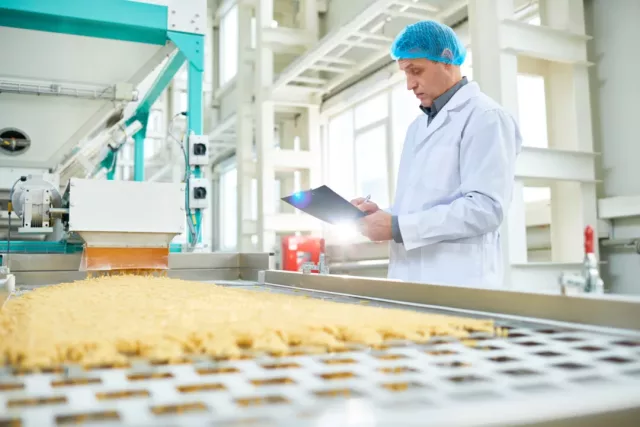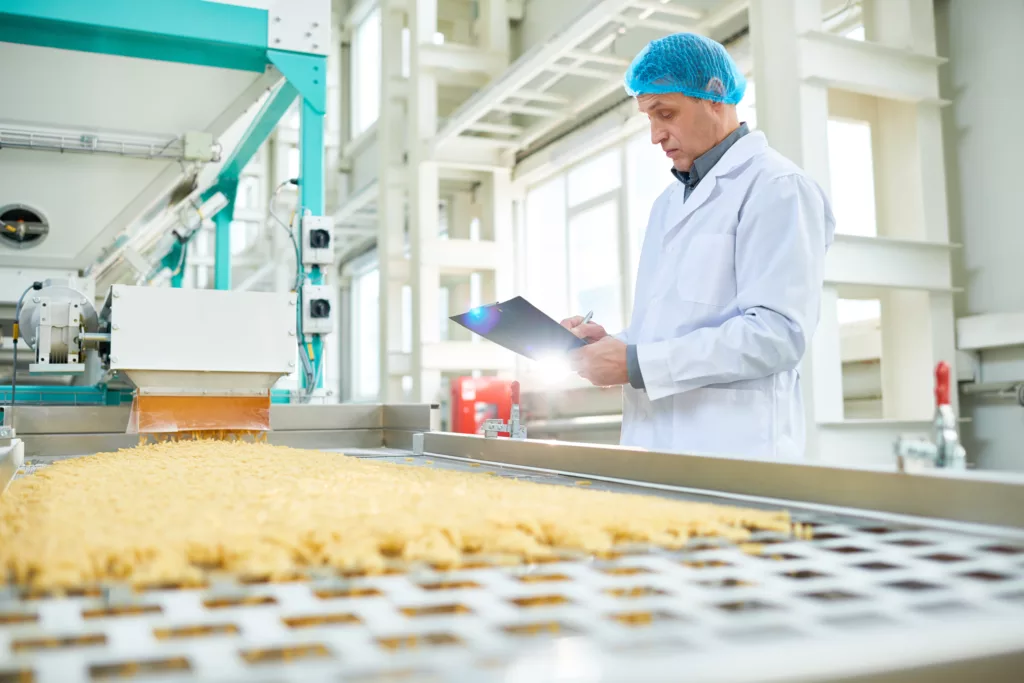How foods and beverages are distributed to consumers is rapidly changing, and it may seem daunting to find a way to keep up. There are, however, many ways that ERP solutions can help Food and Beverage Businesses to keep up with industry best practices.
Best Practices in Food and Beverage Manufacturing
The innovative best practices emerging in the food and beverage industry help food and beverage companies remain competitive even during uncertain times. These best practices include:
- Partnerships. Diversifying partnerships and products is a good way for companies to keep up with an increasingly diversified marketplace. These businesses should strive for omnichannel partnerships relevant to their business model.
- Food Safety. Manufacturers must ensure a transparent food and beverage supply chain throughout each step. This includes leveraging technologies such as Food ERP systems.
- Leveraging IT Assets. Digital transformation and using your IT assets to the fullest will play a key role in keeping your operations competitive. ERP technology can be utilized to ensure profitability, production efficiency, and flexibility in your business operations.
Common Challenges That Food and Beverage Companies Face
The Food and beverage industry needs to adopt these best practices and technologies to aid with their many unique challenges. No matter their specialty in the industry, whether a company bottles beverages or cans food, they are bound to run into these challenges at some point.
Below we look at some of the biggest challenges the beverage and food industry faces and give practical examples of how ERP software can help:
1. Safety and Compliance
Safety should be one of the top priorities of any F&B business. However, many factors must be considered to ensure safety, such as ingredient quality, allergen tracking, expiration dates, etc. If these factors are not managed properly, they may lead to devastating mishaps and even recalls. Investing in ERP business solutions lets your business keep track of even the smallest details within production processes. This way, you can ensure that your entire supply chain upholds food safety standards and compliance requirements.
An ERP also allows you to trace every step of the food/beverage production process, tracking expiration dates, ingredient attributes, and other vital information.
2. Recalls
One of the biggest fears a food and beverage company faces is the possibility of a recall due to regulations, spoilage, contamination, etc. Finding the source of the issues and isolating batches for recall can be difficult. It is important that you can access important information about every step of the production process when looking for the source of problems. With an ERP system, you can isolate questionable ingredients and contain them until they pass a quality check.
With ERP systems and specialized reporting, you can also track issues back to specific batches to quickly and easily notify government agencies, customers, and vendors for faster recall. This can save you money, legal repercussions, and negative publicity that comes with poor customer experiences.
3. Cost Control
The cost will always be a concern when it comes to the manufacturing of any product. ERP software can help you to manage costs related to work processes, inventory, distribution, etc. This software enables you to track all costs and have an accurate real-time cost per product.
ERP software allows you to manage all your costs, including marginal, average, variable, and fixed costs, to develop forecasts and budgets. Some ERP systems will enable you to use first-in-first-out (or last-in-last-out) costing methods. This real-time information will help you cut unnecessary costs and make better decisions.
4. Recipe Management
Manufacturers must have tight control over their recipes and formulas to ensure they aren’t tampered with or altered. This helps these manufacturers to maintain consistency, traceability, and quality of products. ERP systems allow manufacturers to manage multiple versions of recipes and allow for constant improvements.
You can modify recipes with ERP by copying older recipes and making minor changes to create new products. Version control provides a history of each formula used to create each lot. This allows you to have an audit trail of all original ingredients used at any given date and time, by batch, in case of any recalls or quality control issues. Data can be archived or stored for many years with integrated alerts and notifications regarding recalls and allergen issues. The amount of data available is enormous, making ERP for recipe management beneficial and valuable for food and beverage producers.
How Panni Can Help You Manage Front and Back-office Operations
The superior ERP capabilities of SAGE X3 ERP will allow you to proactively identify and manage areas of improvement and opportunities for expansion by offering:
- Uniform and quality data
- Real-time insights with drill-down capabilities
- Secure access to information across interfaces, web, and mobile devices
SAGE X3 is a powerful, feature-rich, and flexible business management solution. It allows for timely and intelligent decisions in all areas, including accounting, advanced inventory management, supply chain, and customer relationship management. Get in touch with one of the experienced professionals at Panni Management to learn more about SAGE X3 ERP’s industry-specific capabilities.



